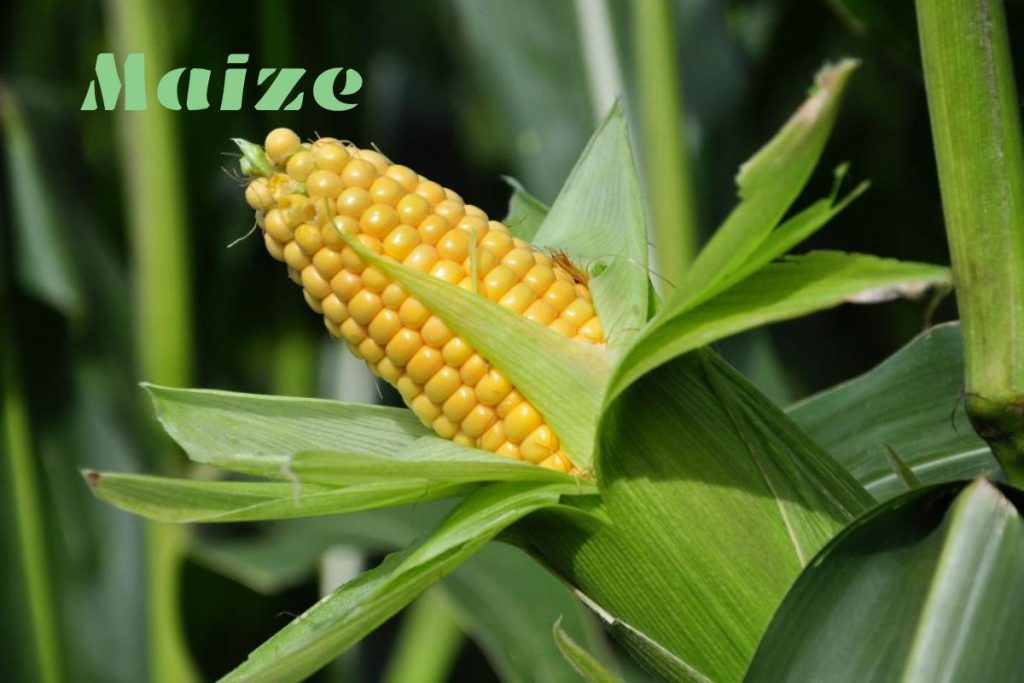Table of Contents
Definition
Maize is the leading food for many countries of the world. Maize is used in corn oil, starch, and cornflour and is included in many industries and areas of energy production, so what are the other most important benefits of maize?
Benefits of Maize
the benefits of maize for health are numerous, and this is due to its rich source of beneficial nutrients.
Promoting Cardiovascular Health
According to studies, corn oil rich in monounsaturated fatty acids necessary to promote cardiovascular health (e.g., omega-3) may help:
LOWER LDL LEVELS IN THE BLOOD BY REDUCING ITS ABSORPTION IN THE BODY.
Reduce the chances of clogging blood vessels and reduce blood pressure.
Prevention of atherosclerosis, heart attacks, and strokes.
Corn oil contains about 60% of its ingredients unsaturated fat, 25-30% unsaturated mono fat, about 10 to 15% saturated fat. Corn is an excellent source of potassium(k), which is vital in regulating blood pressure and maintaining fluid balance in the body. Each 100 g of corn contains approximately 270 mg of potassium.
Protection from Anemia
Because maize is a source of iron and folic acid, it has an active role in preventing anemia as iron is an essential component of red blood cells, and maize particularly recommends for pregnant women for the following reasons:
Maize is an easy-to-digest snack that helps provide the pregnant woman with the essential nutrients she needs.
Because maize is rich in folic acid, it helps prevent neural tube abnormalities in embryos and reduces the chances of low-weight babies being born.
Promoting Digestive Health
one of the benefits of maize is that it is a food rich in dietary fiber that helps promote digestive health, as it is:
Soften the Stool.
Helps prevent constipation and hemorrhoids.
Relieves irritable bowel syndrome.
Every 100 g of raw yellow maize provides approximately 2 g of dietary fiber, and a daily dietary fiber of at
least 25-30 grams is usually recommended. Still, most people do not eat these amounts most days, resulting in intestinal lactation and constipation.
Supplying Energy to the Body
Corn is a vegetable high in starches and calories, where every 100 g of it provides us with approximately 86 calories, so yellow corn may enter the diets of weight gain and treatment of thinness.
For skin and Eye Health
Since corn is a rich source of vitamin A, beta-carotene, and antioxidants needed to neutralize free radicals.
One of the benefits of maize is that eating it helps:
They combat signs of aging, aging, and wrinkles and promote skin health, freshness, and radiance.
It maintains eye health, safe vision, and combating macular degeneration that may be associated with age.
Yellow corn is a great source of vitamin c and vitamin e. It is considered one of the most powerful and important antioxidants in maintaining different cells in the body. Every 100 g of raw yellow corn contains approximately 187 IU of vitamin a, 6.8 mg of vitamin c, and 0.1 mg of vitamin e.
Strengthening Immunity and Preventing Cancers
Because corn contains high amounts of antioxidants and active compounds
Such as phenol, beta-carotene, vitamin e, vitamin c, and fiber, corn benefits include:
Very effective in promoting immunity, neutralizing free radicals, and combating various infections.
Helps fight some cancers:
Phenols, for example, have found a role in the resistance to both breast and liver cancer.
Fiber helps prevent rectal colon cancer.
The presence of vitamin a, lotin, and beta-carotene plays an essential role in preventing lung and oral cancers.
Other Benefits of Maize
The benefits of corn may not be limited to what has been mentioned earlier only:
It may be essential for strengthening bones and teeth, and we have replaced it with many vital minerals, such as calcium, phosphorus, magnesium, and copper.
It is essential in maintaining nerve integrity, working enzymes, and regulating the metabolism of different elements in the body.
Corn contains it may help prevent many diseases and symptoms that may result from a lack of specific essential vitamins, such as pellagra disease.
Corn is also gluten-free, which can make it a unique choice for those with wheat allergies and syntosis, so the benefits of corn to the body are numerous and may be an example of a rich and excellent snack.
Warnings and Dangers of Maize
Despite the many benefits of maize, it is not without some caveats that you should first realize about maize and its products, the most important of which are:
Many studies link one type of sugar derived from cornstarch to diabetes.
Excessive corn intake can cause weight gain, so we should eat corn moderately.
Always try to chew corn well before swallowing it, as yellow corn contains a specific fiber that may be difficult for the body to digest and break up.
Therefore, Try avoiding corn with any additional fat (such as butter or oil) so as not to turn it from a snack into a creamy and unhealthy meal.


